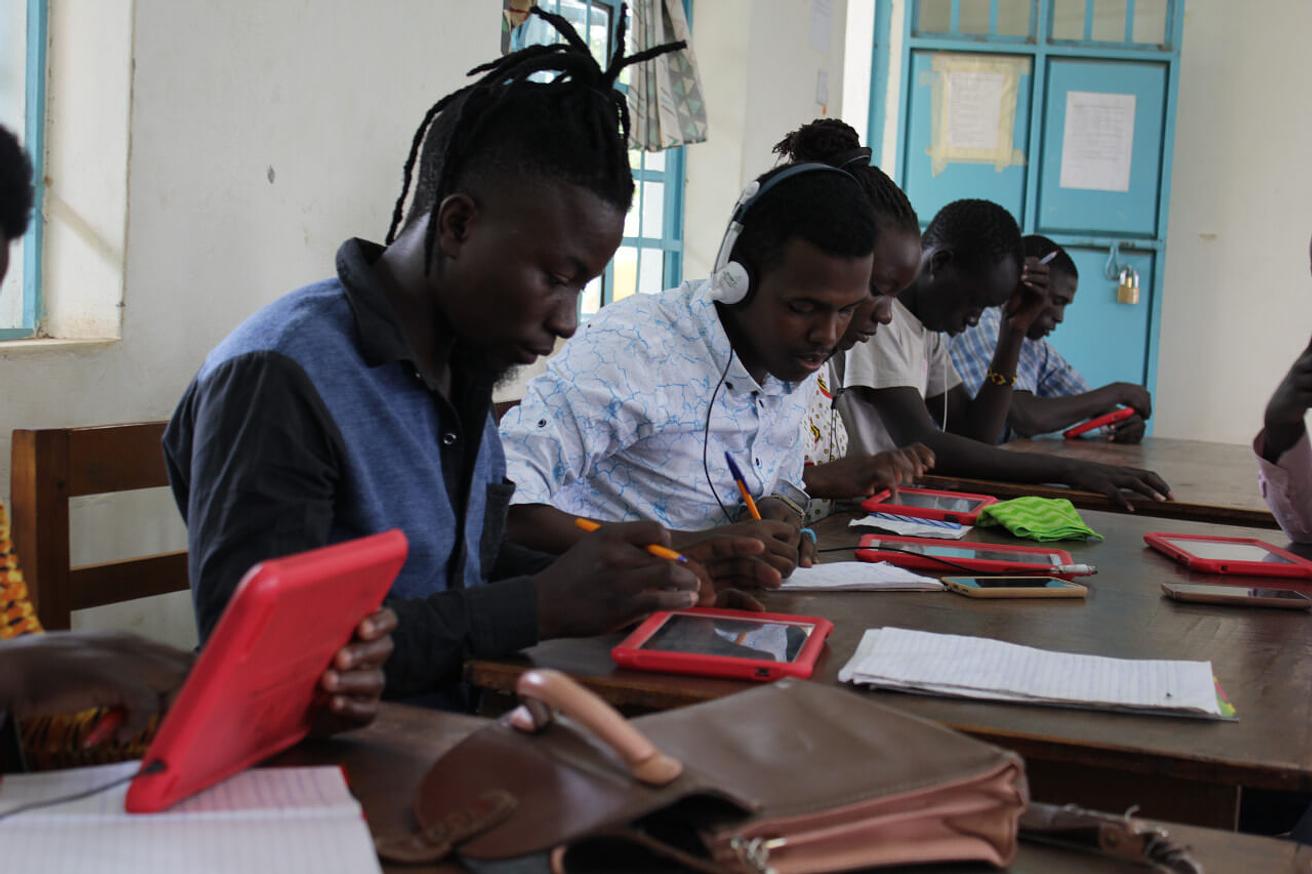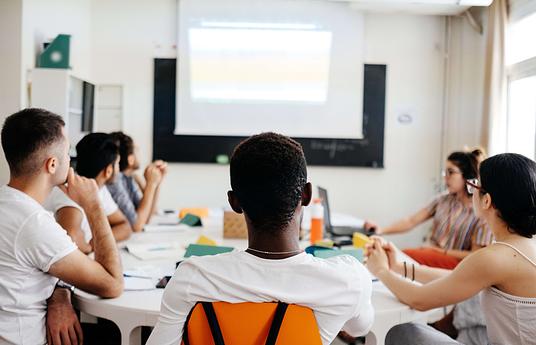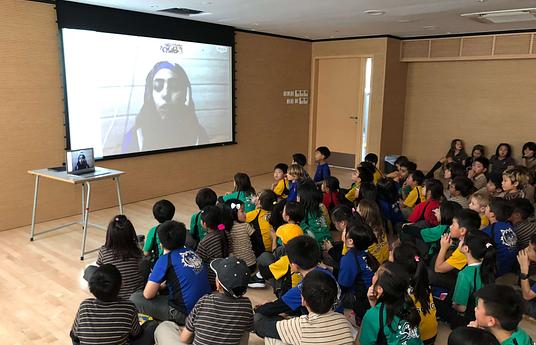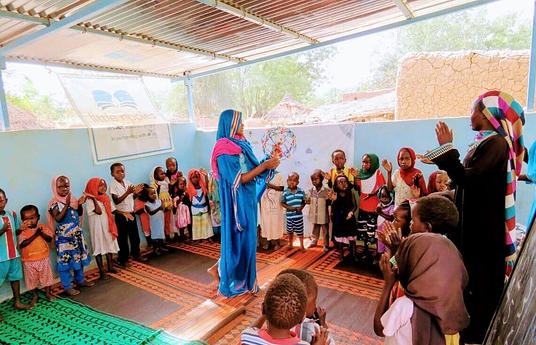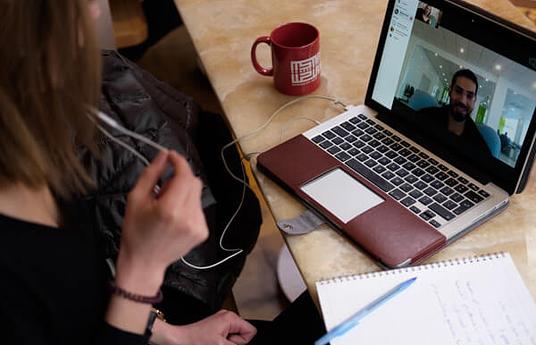For most of us today, it is hard to believe what we would have done without our education. Our education no doubt has helped many of us develop an understanding of ourselves. It gave us purpose and direction, friends, a social and professional network, but most importantly, it gave us the opportunity to choose our path in life, and go on to do something that would give us meaning and a sustainable livelihood.
For millions of people, however, this access to education is out of reach. As we celebrate International Migrants Day, it is important to note that while the world has become more globalised and connected, with more people on the move, displacement and migration can often interrupt or block access to education.

The International Organization for Migration predicts that there will be at least 405 million international migrants by 2050. Migration is a powerful testament to humans overcoming hardship, finding new opportunities and pursuing a better life, not only for themselves but for their communities. However, not everyone leaves their country and home by choice. Today, a staggering 70.8 million people have been forcibly displaced from their homes due to conflict, poverty or climate emergencies. Syria, Afghanistan, South Sudan, Sudan, Myanmar, Somalia, and the Democratic Republic of Congo account for 67% of the world’s refugees.
One of the largest challenges to the flow and displacement of people around the world is the lack of educational opportunities for children and young people. While 63% of global refugees have access to primary education, only 24% get to go to secondary education - leaving just 3% with the opportunity to access higher education. Barriers such as language, needing to work, and lack of capacity in the local education system to integrate large numbers of refugees, leave too many young people without the opportunity to learn.
Moreover, refugees spend an average of 17 years in displacement, and therefore many young refugees spend their entire adolescence out of the education system. Those that try and find a way in are too often faced with closed doors.

At Amala (formerly Sky School), we are firm believers that education matters - and the statistics show us that this is indeed true. A UNESCO report found that low levels of education combined with high levels of inequality in education significantly heightens the risk of violence and conflict. As such, regions with very low rates of education have a 50% chance of experiencing conflict.
We also believe that no one’s education matters more than others. It is grossly unjust that 76% of young refugees never get the opportunity to further their education by completing high school. The type of education that young people receive also matters immensely. The future of education is changing, and we want to be at the forefront of it, ensuring that the young people we work with receive an education that meets their individual and collective needs.
Gone are the days when the sole purpose of learning was to find work and earn a living. The ‘top-down’ approach to education, where a teacher holds the knowledge, and students learn and memorize facts and figures to evidence their learning, will soon be replaced by more self-directed, experiential and project-based learning. The labour market will require much less on-demand knowledge and practice, and instead more “21st century skills” such as compassion, critical thinking, communication, collaboration and problem-solving.
At Amala (formerly Sky School), we encompass this educational shift and ensure that focus on “access” to education is closely followed by quality. Together with one of the leading schools in the world, UWC South East Asia, Amala has spent the last two years working alongside refugee learners to co-create the first international high school diploma programme, specifically designed for out-of-youth refugees.
We want to provide high-quality learning to those ‘last mile learners’ who for reasons such as age, having to work and family commitments - are unable to access traditional education. At the heart of our education is the development of agency, encouraging young people we work with to make choices in life that they have reason to value. We draw the focus of learning towards the development of 21st-century skills by placing interdisciplinary subjects, that take departure in our learners’ wants and needs, at the core of the diploma programme.
We take a human-centered approach to our work and programming because we believe that education is an enabler. The young people we work with know their societies and communities, and they know how to improve them. Our agency-focused model means that education can not only lead to higher education and employment opportunities, but it is also a way of creating immediate opportunities for learners. It allows them to use the resources they already have access to, develop their own thinking and put their thoughts into action in a way that they choose to. This provides hope, which in turn develops into resilience.
Zamzam, alumna from Amala (formerly Sky School), our peacebuilding course in Kakuma Refugee Camp in Kenya, is an example of one of our students who has gone on to create positive change. Today, she is working to become a community leader and to help solve conflicts between women in the community. She looks forward to bringing the skills that she learned on the Amala course back to Somalia, where she is originally from.
Innovations are needed in a number of areas. It is not just the world of education, but also the world of work which is changing. Fellow HundrED Innovator ‘Natakallam’ has responded to this change by providing refugees the opportunity to work digitally by giving language lessons via Skype. This has created much-needed opportunities for refugees to use their skills, develop and grow as people.
Our work with refugee learners over the past three years have taught us that learning is a human desire and need: Young people in displacement are as hungry to learn and contribute to their communities and societies as much as anyone. Their only difference is that they rarely get the opportunity to do so. With the Amala (formerly Sky School) Diploma Programme, we hope to be a lasting solution to the many refugee learners out there who find so few opportunities to continue their learning. We hope our learners, in turn, become forces of change in their communities.
To know more about Amala, please visit their innovation page.
